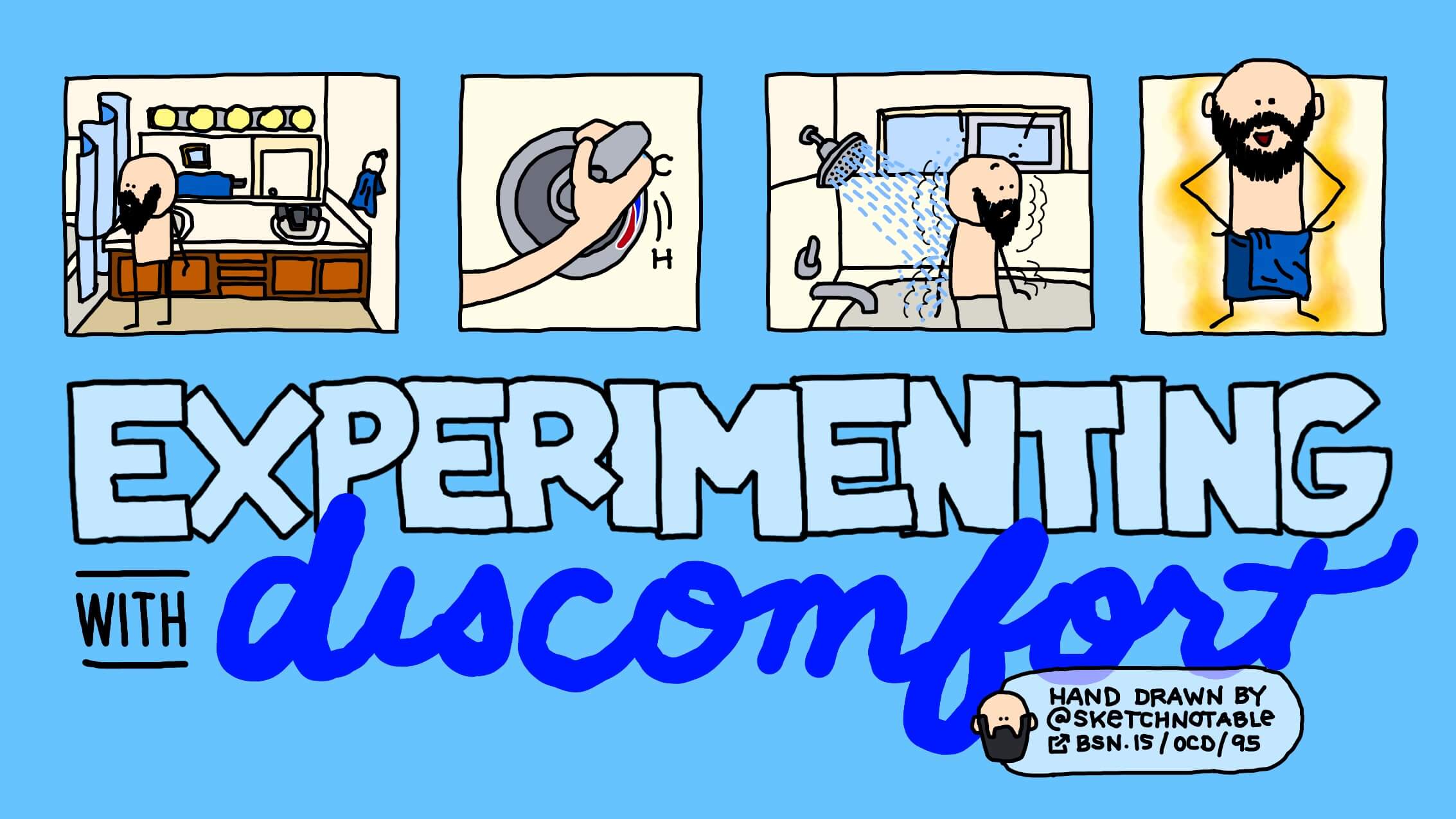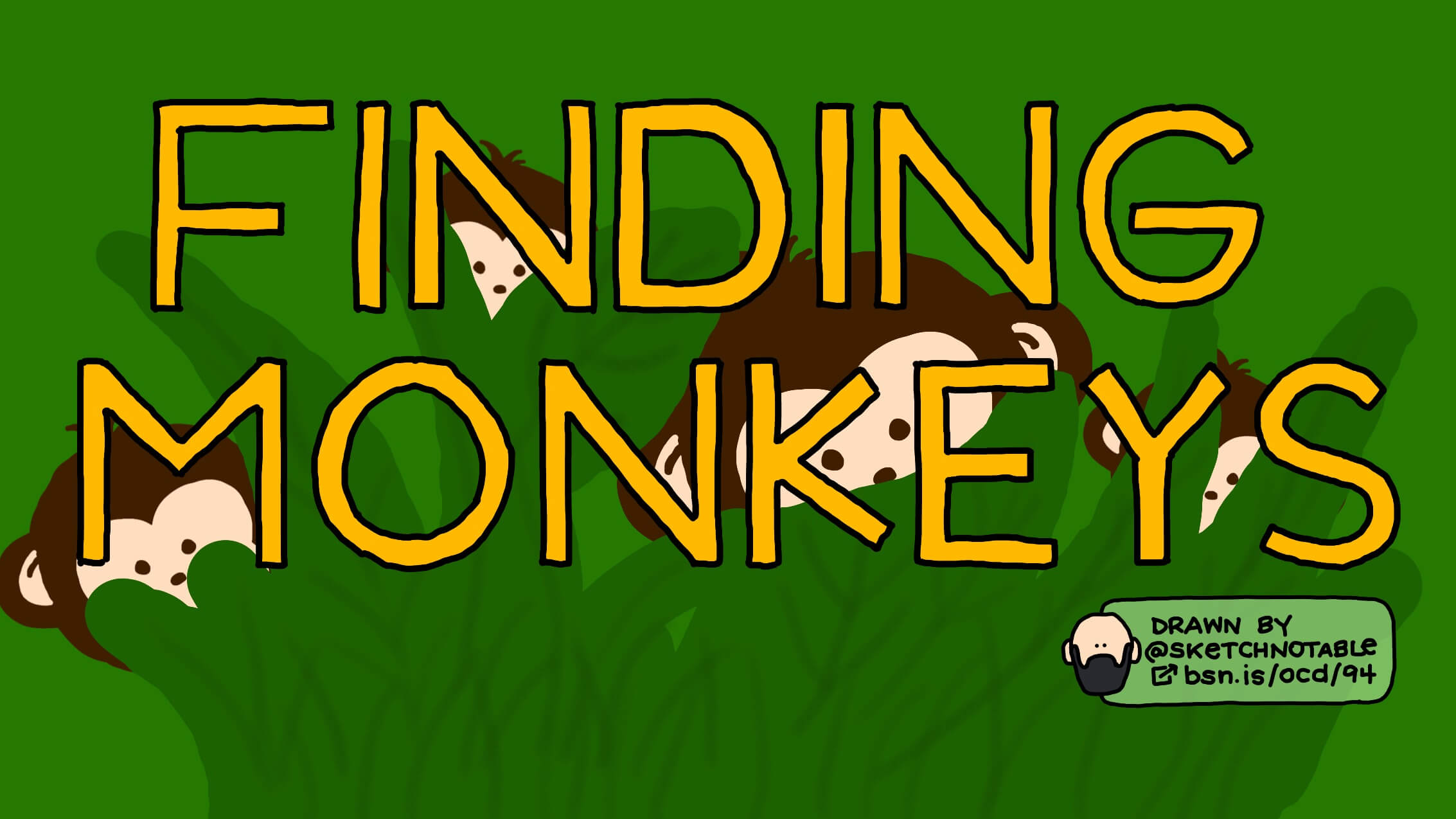This week included a reprise in my role as a limited-time stay-at-home dad, a chilly discovery, and allowing a known trigger into my life.
These weekly updates share life with OCD as part of my Mental Work Health project to reduce stigma around mental health, especially at work.
Something hard
The job of a stay-at-home parent is hard as hell. Substituting for that job a few days this past week was a good reminder of just how difficult it is. It gave me a renewed appreciation for all that my wife does to help our family and household run smoothly.
I realize that I only had a small taste of her actual load. Homeschooling seven children is a demanding full-time job in and of itself, and I did almost none of that.
A year ago, I did this same thing, and wrote about it in update #53: Staying home.
This year, I made things harder for myself by trying to work a bit while also managing the kids. In a shocking surprise, I didn’t get much done. I would have been better off focusing on spending time with the kids, and then finding time to concentrate on work, instead of trying to straddle both.
As I think about my experiences last year and last week, one thing that hits me is the progress I have made. Before a couple years ago, this almost never happened. My wife rarely left overnight, and if she did, I usually had instructions written up, like a babysitter. If I didn’t know exactly what to do and when, my level of distress was prohibitively high.
But now, I’m able to handle this much better. Things don’t go perfectly, and I’m ok with that. There is no list, or at least it certainly doesn’t include everything. This is a marker of progress that is truly meaningful to me. By managing my OCD better, I am able to enable my wife to do more, and that feels great.
Something good
I have used cold showers before as psychological first aid—usually to help navigate a panic attack. TIP1 is one of the first skills that I learned from my therapist when I started seeing her during the great breakdown of 2018. It is an acronym for temperature, intense exercise, and paced breathing, and is a gateway skill—it helps allow me to do other skills by breaking the cycle of panic and agitation.
Jocko talks about taking cold showers, or even ice baths, and how helpful it can be for your physical health. I’m not quite to that point yet.
In the middle of last week, I got up after a good night’s sleep. At the end of my shower, I turned the water a little colder than I usually do. After a few seconds of shock, it started to feel nice. When I got out, I felt invigorated.
The next day, I started with the water a little colder. I got in, and found that I quickly habituated. I turned it colder, and even that was fine after a few seconds, so I went to turn it even colder and realized that it couldn’t go any further.
So on the following day, I turned the shower to full cold, stepped in, and focused on my breathing. In the past, that kind of shock completely took over my mind, and that’s all I could think of. Now, after just a couple days of doing this, I was just fine after a few seconds. It felt pleasant.
This has so many parallels to my work managing OCD. First off, the anticipatory experience is almost completely opposite the lived experience. OCD hijacks my brain, claiming that there is a dire risk (the obsession), and that the only way to avoid it is to perform some kind of ritual (the compulsion). In most cases, the fear of what I will feel is much stronger than the feelings I actually experience when confronting reality.
Another huge similarity is the process of habituation. When I went through my IOP (intensive outpatient program) at The OCD & Anxiety Treatment Center, most of the time was spent doing exposure and response prevention (ERP) therapy. That is all about habituating to what my brain claims is an emergency, and sitting with the distress of confronting it.
There is a good chance that cold showers are a phase that will come and go. But for now, I’ll continue to ride it and enjoy the immediate benefits to my mood.
Something else
Last week, I shared about meeting with a new psychiatrist and being asked to describe how OCD was manifesting in my life in update #94: Finding monkeys.
It may have surprised you that I had not been completing my assignment to keep a log of how the days were going.
As I wrote about last week, part of my hesitation was that I didn’t want to open the door to OCD. But I realized that this is an opportunity to harness my tendencies for good. Last summer, I wrote about putting OCD in action. Just like Monk says, “It’s a gift, and a curse.”
The conundrum for me was how much to let myself track.
(Side note: the fact that it was even a conundrum for me is a clear marker that my symptoms are flaring. This kind of “decision” should not merit any substantial thinking.)
I decided that the general guideline2 is that tracking for a clear purpose is ok. Especially if my doctor asked me to.
However, if I’m tracking just to have the data, that’s where I should draw the line.
In practical terms, that meant that I deleted the sleep tracking app I had installed that did all sorts of fancy analysis and calculated my sleep debt. (Oh, sweet certainty!) But I kept my mood tracking app and started recording how my days were going.
![]()
I will see how things go with this level of tracking. It does feel like cracking open the door to a known criminal, in the hopes that he will quietly deliver a small package and walk away.
Wrap up
This is one of those moments for me to pause and recognize that life has been more demanding than usual. Of course my symptoms will be higher. Of course I will need extra time to accomplish my regular roles and responsibilities. Of course I will struggle a bit.
I wonder, what’s going on for you? Maybe take a minute to pause and consider the factors that might be playing in to the difficulties you are surely facing. Be kind and cut yourself some slack. An extra dose of compassion goes a long way.
-
Technically, the skill is TIPP, for temperature, intense exercise, paced breathing, and progressive muscle relaxation. But that’s not how I learned it, or how I practice it. Trying to relax my muscles seems nearly impossible in a situation like that, although I’m sure it helps with some practice. ↩
-
I first called my plan for tracking a “general rule,” but rules are loaded and dangerous for me. And it’s really not a rule—it is my intention for how I want to balance tracking. Words matter. And this was probably a bit symptomatic to be picky about the term. ↩



